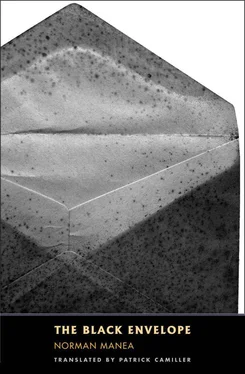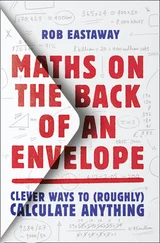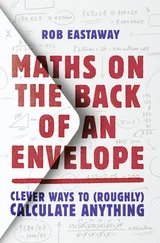Well, you’re not. It’s a sir who’s speaking, consider that. The simple man of our times, and I make no distinction between friend and enemy, that’s what Sir Hartley Shawcross said. The simple man of our times! To show that he’s determined to place the individual above the state. Well, did the simple man prove it? Can he place the individual above the state — is that what he wants? Tell me, tell me what you think. Is that why we’re not allowed to discuss History openly?” Neighbor Vancea did not reply, of course; he did not even hear the challenging question.
Does talkative Matei mean to suggest that he has always fought for a just cause, and that even now he has not lost his courage? That his passion for History extends to the present, covering the fate of all those struck down by History, both yesterday and today? He spared no effort to achieve a sign of interest or approval, even after he had convinced himself that the chances for the future did not lie with Tolea Voinov. “Do you remember the so-called system technician who was acquitted at Nuremberg? He it was who called Hitlerite totalitarianism the first dictatorship of modern times. In fact, Speer also gave explanations for it, as you know. The dictator, he argued, no longer needs people with great qualities to work for him. Information technology offers ways of mechanizing the activity of subordinates, so that they do nothing but docilely carry out orders.”
But Tolea was silently dreaming, sleeping: he did not take the trouble to give any sign of being there. He was convinced that neighbor Gafton’s logorrhea would eventually sweep him on toward the taboo subject.
“You were right, Mr. Vancea. Among the paintings that Carol II took out of the country there was also a Titian. Of course, this was not directly connected to the events that were to follow.”
Oh yes, it was. How could it have been otherwise, since you are no longer talking about Sir Neville and Sir Hartley and Jodl and Speer but about our own unlikely parts, with their ultracoded laughter and tears, which are missing from the map of the world.
“The year 1940, as you know, was one of the preliminaries. Moral degradation, corruption, demagogy. There’s something attractive about a playboy on the throne, isn’t there? At least from the perspective of the tragedy to come. There were forty-one paintings according to Leo Bachelin’s catalogue: a lot of El Grecos, but also Veronese, Caravaggio, Van Dyck, Rembrandt. There’s also one small Titian, you were right. Saint Jerome , the Bachelin catalogue, location 66. Saint Jerome kneeling before a crucifix suspended on the rocks. Beside him a cardinal’s hat and a holy book. Cloudy sky, steep slopes, blue sea in the distance. The moment appears to precede the torture of the body. It is a replica of the painting in the Balbi Gallery in Genoa, of which there is another copy in the Louvre … Theft, royal theft, of course. The masquerading, the falsification that precedes barbarism. But it really cannot be compared with what followed; it just paved the way for it. Paved the way for the cancer that can no longer be checked. If only there had been a code of behavior; if only we had lived in a different world which— By the way, you’ve received an envelope …”
Yes, that was it. He had to get there in the end, to confirm that not by chance had the letter been handed to its addressee by the Chronicler of History himself, neighbor Gafton.
Dominic usually found his letters slipped beneath the door of his cell, either by the postman or by neighbors. This time the envelope had appeared on view, on the table in the hall. And Mr. Gafton made sure he drew his attention to it: “You’ve got a letter from a long way away, Mr. Vancea.” He was not embarrassed, then, to show that he had examined the envelope, which had remained for several days on the hall table without being collected by Dominic Vancea. The considerate neighbor had therefore slipped it under his door. And now he remembered again that the incident had not been forgotten. He had tried to act as if he didn’t care, to avoid looking at the envelope for days. But it had been no use in the end: such strategies had broken down, dulcissime frater . In the whole tangle of facts brought to the Gafton Resuscitation Chamber, there is also your life, Old Scatty; it’s shown by this envelope from afar, all the way from Argentina, from your brother, who hoped to escape the History of our balloon flattened at the poles and in its feelings. In those days a lot of people changed not only their name, like neighbor Gafton, but also their soul. Times long gone? Present times, frater . Without a past, no present, yet we are only present. As for the present past — we can’t get away from it. It’s shown by this elegant envelope covered with stamps and postage marks, coming from afar and long ago. Present, here, now, inevitable. Quack! Windbag! He tried to hypnotize the keys on the board in the Hotel Tranzit. Time: 11:51 and 13 seconds. Impenetrable before the elegant wrapping from Argentina. As if he were not looking at it, as if he had not been the one who left the envelope on view, on the desk. In vain does his slippery colleague Gina keep twisting and turning, accidentally touching the registers, sorry, accidentally touching the clown — electric touch, excuse me, oh dear, what a fragile, glassy elbow, oh excuse me. Mistake, futile contact. Her provocative, crafty eyes: surely they will find something out, anything. Not a chance, dear hunters! Your prey knows the game and he quite enjoys it. Not a chance, not a chance: the buffoon is wearing armor and lives on the moon.
COMRADE OREST,
Source Mushroom is not available for the time being. She’s in bed with a bad flu. I don’t think it’s a lie this time. I rang her in a rough tone of voice; I know that scares her. She wants us to meet as soon as possible, to know for sure that everything’s in order. So we’ll leave Mrs. Mushroom for a week to recover.
Yesterday I visited Uncle Mihai at the Association’s nursing home. It’s better for him there. It may also be better for me, as you say, that I don’t have to see him every day. He’s the most important person in the world to me, I know. My real father, I know. I never knew the other one; we’re the only relatives each of us has got. Do you remember the failure of his first brain operation, nine years ago? That famous lisping surgeon cut through to the nerve and that’s where the calamity started. Euphoria! Euphoria, with punning tendencies — that’s what those stupid doctors called the illness, and that was what it was. Constant merriment, total amnesia. A special circuit: the scalpel has only to touch it and we start being in paradise, like the man of the future … He traipsed the streets all day, spoke to everyone, went in everywhere: cinemas, shops, fire stations, public baths, hairdressers, everywhere. Known to everyone — a star, quite simply! With no precautions or emotions or feelings, because he always forgot in a moment where he had been, what he had said. Jokes, funny stories, but also rude remarks that might have cost him dear. Always relaxed, of course; no one would have guessed he was ill. Or only someone who’d known him a long time, who was used to his physical strength, good sense, and seriousness of old.
He needed the special immunity that only special authorities can grant, as you said. I only grasped that after the second operation, which, instead of putting right what the first had got wrong, also added difficulties of speech and hearing. Now the euphoria is suffocating him, as you know. Yesterday I watched him for nearly two hours among the Association’s pensioners and patients. I tried to convince him that his name is Toma, not Tomescu, as he introduces himself here. Again and again I repeated his name, Mihai Toma; his brother’s, Aurel Toma; and my own, Toma A. Toma. Useless. When the nurses finally agreed to call him Tomescu, he changed his mind. He kept stuttering, Tom, Tom — like that, American-style. Tom, always Tom, until I achieved a compromise: Tom Tomescu. I’ve done you justice again. The Association’s home, modest though it is, provides an assurance of order, strict subordination, modesty, and apathy— yes, I know all that. But the danger of an explosion in someone like him cannot be totally discounted — I know that, too. Only a son can understand, an adopted son like me. I am in control, as you must realize. Persevering, perspicacious, I know — that is, intelligent in the things I do .
Читать дальше












